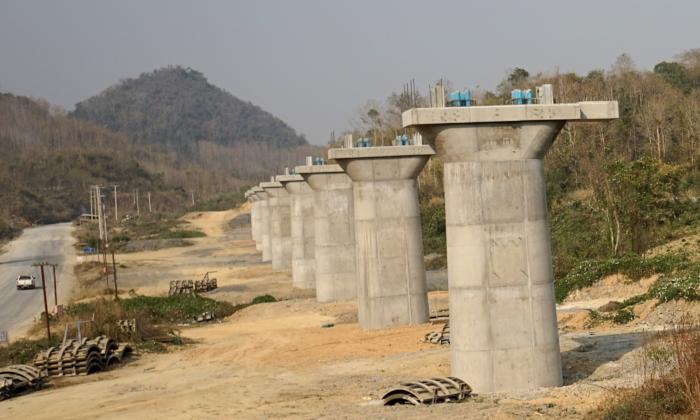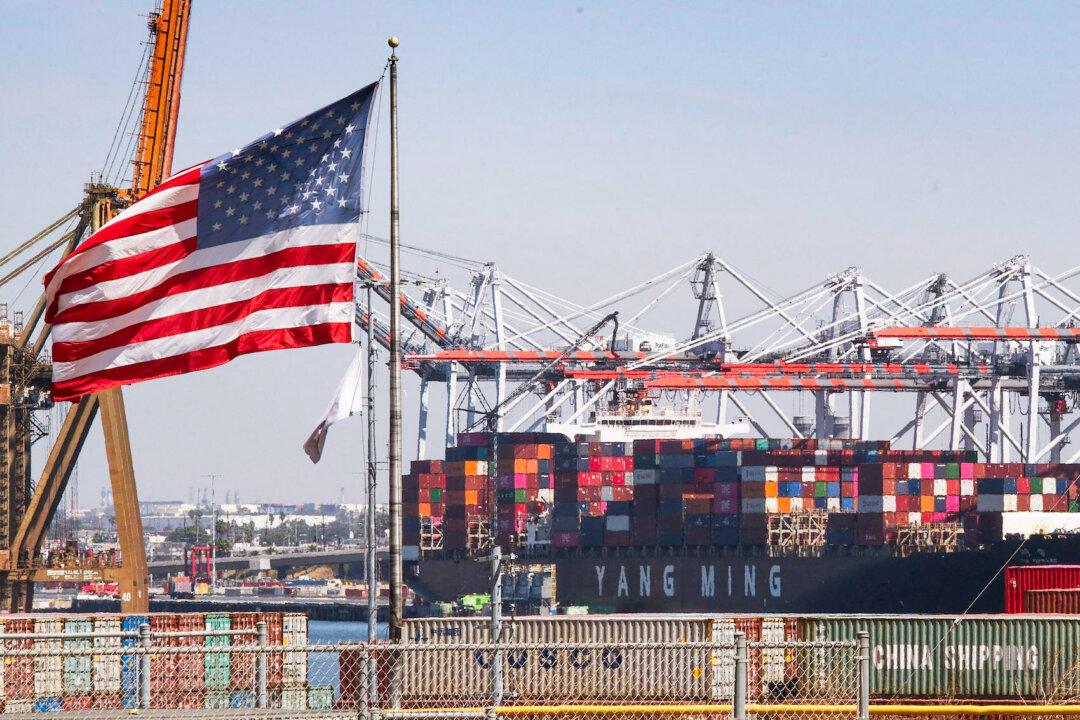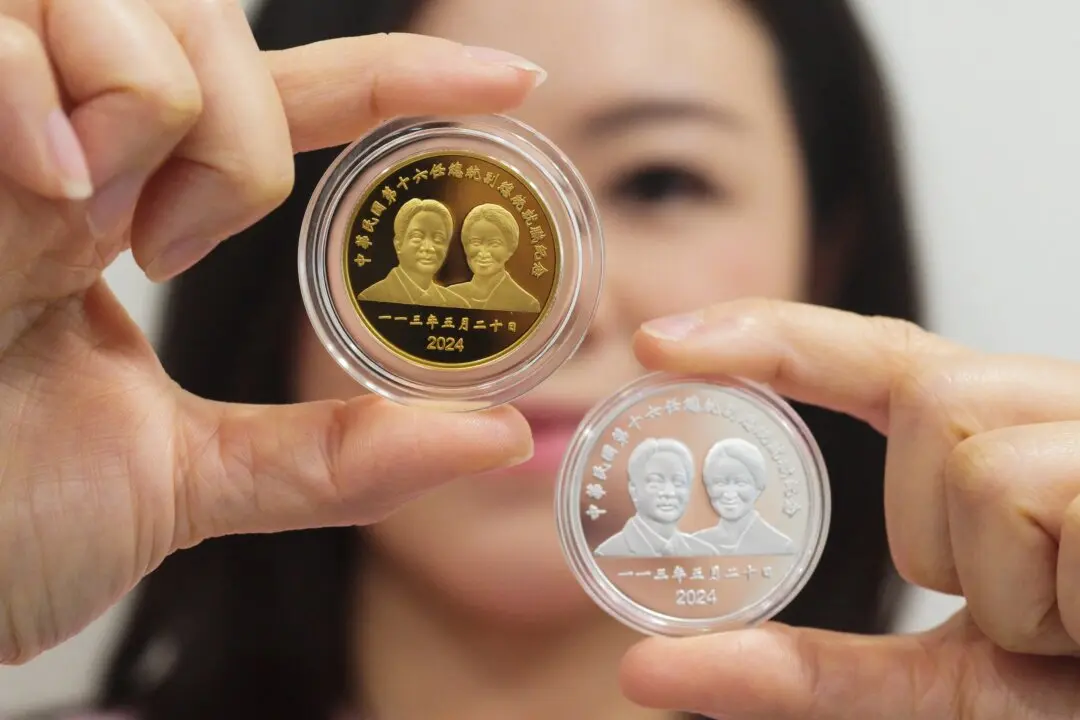Commentary
The U.S. interest rate hike will help curb inflation in the United States while drawing investment away from China. This will, in turn, drive down the yuan and increase the cost of foreign debt payments for the Chinese Communist Party (CCP) and Chinese corporations.
To combat inflation, already at 8.5 percent in the United States, the Federal Reserve Board raised interest rates by .5 percentage points on May 4. The Fed had already raised the primary credit interest rate by .25 percentage points in mid-March, the first increase since 2000. Fed Chairman Jerome Powell said in a May 4 press conference that there might be multiple rate hikes of 50 basis points over the coming months.
Higher interest rates generally cool off an overheated economy because the cost of borrowing increases. People tend to use credit less as rates on credit cards and loans increase. Interest rates paid on savings accounts and certificates of deposit rise, encouraging people to save money in the bank rather than spend.
The downside is that anyone with an adjustable-rate mortgage or credit card will see an increase in cost. New home and new car purchases should slump, as will general consumer spending. The prices of bonds will decrease because higher rates will be available on new issues. The cost of borrowing for the U.S. government will increase, driving up the U.S. debt to GDP ratio.
Across the globe, including China, higher rates in the United States will eat into corporate profits because many global companies borrow in U.S. dollars. On the other hand, a stronger dollar makes foreign imports cheaper and more attractive to American consumers.
Conversely, U.S. exports become more expensive, and demand for U.S. products drops overseas. Higher rates will also pull foreign direct investment toward the United States and away from China. This will weaken the yuan, undermining the central bank’s monetary policy.
China’s economy has been slowing due to a combination of factors. Lockdowns during the first two years of COVID-19 left consumers with less money to spend. The war in Ukraine exacerbated the problem, with inflated energy costs, rising commodity prices, increasing manufacturing costs, and supply chain disruptions.
Ongoing lockdowns in Shanghai and other major cities have driven China’s economy down to levels not seen since the beginning of the pandemic in 2020. Manufacturing and export growth are down. The non-manufacturing purchasing managers’ index (PMI) was 48.4 in March, but fell to 41.9 in April. Similarly, the Caixin services PMI, a measure of the non-manufacturing economy, dropped from 42 in March to 36.2 last month.
Mortgages in China are down and overall lending has dropped to a five-year low as consumer demand diminishes. Banks offered roughly half as many loans in April as in March. At the same time, the shadow banking industry has also taken a hit. The decline in lending suggests that consumer expectations are bearish, and citizens would prefer to hold on to their cash than spend or invest it. As a result, consumer spending has declined.

The headquarters of the People's Bank of China (PBOC), the central bank, is pictured in Beijing, China, on Dec. 13, 2021. Andrea Verdelli/Bloomberg via Getty Images
Chinese leader Xi Jinping’s plan to rely on internal consumption as a driver of the economy is not working. Bloomberg reported on May 13 that it expects the People’s Bank of China (PBOC) to cut interest rates in order to encourage borrowing and spending. Meanwhile, the interest rate on commercial paper, short-term corporate debt instruments, had fallen to near zero last month. This raises the question: how much lower can it go?
Efforts by the PBOC to stimulate the economy are expected to increase China’s debt-to-GDP ratio, which already stands at about 77 percent. As a result of government stimulus, the growth of China’s M2, the broadest measure of money supply, increased from 9.7 percent in March to 10.5 percent by the end of April. An increased money supply would normally be associated with an increase in borrowing, but this has not happened.
Hong Kong, a significant component of China’s economy, will be hit hard by the U.S. rate increases. The Hong Kong dollar has been pegged to the U.S. dollar since 1997. This U.S.-dollar peg has kept the currency stable, but it also means Hong Kong’s central bank has little choice but to follow the U.S. lead in terms of monetary policy.
Like China’s economy, Hong Kong’s economy is flagging. In May, Hong Kong’s growth projection for 2022 was cut to between 1 percent and 2 percent. A rise in interest rates will slow its economy even further. The higher rates are expected to impact the homebuyer’s market first, with subsequent effects felt across banking and other sectors over the next six months.
Increased U.S. interest rates, the subsequent rise of the dollar and depreciation of the yuan will make it harder for the CCP to service its foreign debt, which is mostly in U.S. dollars. Chinese companies will also be affected, because roughly a quarter of China’s corporate debt is also in dollars.
Fitch Ratings has cut its China growth forecast from 4.8 percent down to 4.3 percent. Both forecasts are notably below Beijing’s growth target of around 5.5 percent. If lockdowns in China and interest rate hikes in the United States continue, China’s growth outlook could be cut again.
Views expressed in this article are opinions of the author and do not necessarily reflect the views of The Epoch Times.





